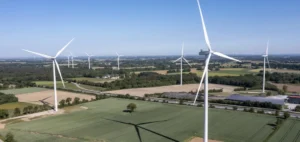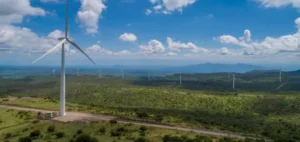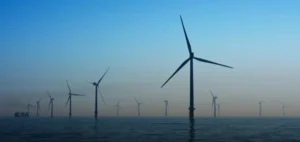The groundbreaking of a wind turbine and energy storage production plant in Khorgos, Kazakhstan, marks a significant milestone in the country’s energy infrastructure development. With a $40 million investment, this project is set to reshape Kazakhstan’s energy landscape and bolster its industrial capacity.
Scheduled to open in the third quarter of 2026, the plant will have an annual production capacity of 2 GW of wind turbines, equivalent to around 250 units, and 1 GWh of energy storage systems, producing 100 units. While 60% of the output will cater to domestic needs, 40% will be exported to Central Asia and the Caucasus, strengthening Kazakhstan’s regional position in renewable energy.
Major Economic and Industrial Stakes
This project, developed in collaboration with Kazakhstan Utility Systems LLP, highlights the growing importance of renewable energy in the country’s industrial strategy. It is expected to create over 3,000 jobs, including 300 roles directly tied to production. Such an initiative strengthens local industrial dynamics and reduces dependency on imported technology in a critical sector.
Localizing the value chain within Kazakhstan not only reduces logistical costs but also aligns with the government’s modernization goals for the industrial sector.
Strategic Political Implications
The development of this plant also reflects broader political objectives. By committing to local production of renewable energy equipment, Kazakhstan aims to enhance its energy autonomy while positioning itself as a more active player on the global stage.
The partnership with international companies further underscores the country’s openness to advanced technologies and foreign investments—key elements in achieving carbon neutrality by 2060. This project aligns with an energy policy designed to attract new capital while supporting initiatives that match global climate objectives.
Training and Knowledge Transfer
A central focus of this project lies in the development of local expertise. Training programs, in collaboration with local universities, will facilitate the transfer of technological know-how necessary for the maintenance and operation of these infrastructures. This will strengthen the country’s economic and professional fabric while preparing local talent to meet the future demands of the energy sector.






















